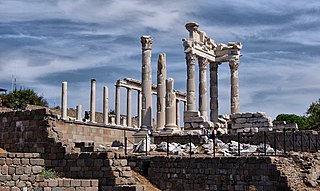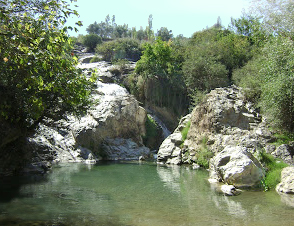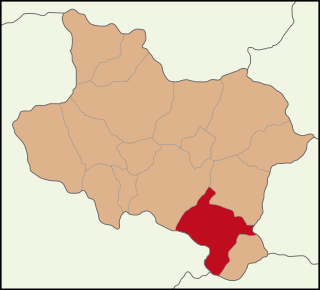See also
- Bozdağ, a town in Turkey formerly called Tmolos
Tmolus may refer to:

Midas was the name of a king in Phrygia with whom many myths became associated, as well as two later members of the Phrygian royal house.

Tantalus, also called Atys, was a Greek mythological figure, most famous for his punishment in Tartarus: for trying to trick the gods into eating his son, he was made to stand in a pool of water beneath a fruit tree with low branches, with the fruit ever eluding his grasp, and the water always receding before he could take a drink.
Agron may refer to:
Telegonus is the name shared by three different characters in Greek mythology.

Mysia was a region in the northwest of ancient Asia Minor. It was located on the south coast of the Sea of Marmara. It was bounded by Bithynia on the east, Phrygia on the southeast, Lydia on the south, Aeolis on the southwest, Troad on the west, and the Propontis on the north. In ancient times it was inhabited by the Mysians, Phrygians, Aeolian Greeks and other groups.
Mount Parnassus is a mountain in Greece, sacred in mythology and a metaphor for the arts and learning.

Pactolus, also called Chrysorrhoas (Χρυσορρόας), now named Sart Çayı, is a river near the Aegean coast of Turkey. The river rises from Mount Tmolus, flows through the ruins of the ancient city of Sardis, and empties into the Gediz River, the ancient Hermus. The Pactolus once contained electrum that was the basis of the economy of the ancient state of Lydia, which used the naturally occurring alloy of gold and silver to forge the first coins under Alyattes of Lydia.

Alaşehir is a municipality and district of Manisa Province, Turkey. Its area is 971 km2, and its population is 104,717 (2022). It is situated in the valley of the Kuzuçay, at the foot of the Bozdağ Mountain. The town is connected to İzmir by a 105 km (65 mi) railway.
Larissa is the capital and largest city of Thessaly, Greece
Atys may refer to:
Myrina may refer to:

Mount Tmolus, named after Tmolus, King of Lydia, is in "a mountain range on the south of Sardis, forming the watershed between the basins of the Hermus in the north and the Cayster in the south, and being connected in the east with Mount Messogis." It is situated in Lydia in western Turkey with the ancient Lydian capital Sardis at its foot and Hypaepa on its southern slope. The mountain was "celebrated for its excellent wine-growing slopes. It was equally rich in metals; and the river Pactolus, which had its source in Mount Tmolus, at one time carried from its interior a rich supply of gold." The geography of Tmolus and the contest between Pan and Apollo, associated with the mythical Tmolus, son of Ares, are mentioned in Ovid's Metamorphoses, 11.168.

Hypaepa or Hypaipa was an Ancient city and (arch)bishopric in ancient Lydia, near the north bank of the Cayster River, and 42 miles from Ephesus, Ephesus and remains a Latin Catholic titular see.
Olympus or Olympos may refer to:
Aureliopolis in Lydia is a city in the Roman province of Lydia, previously called Tmolus or in Greek Τμῶλος (Tmolos). It issued coinage under each of these names, and one coin combines both names. In the Synecdemus it appears as Auliou Kome. The name "Aureliopolis" was given in honour of the emperor Marcus Aurelius.
Naïs is an eighteenth-century opera by Jean-Philippe Rameau.

Aureliopolis in Asia is both a Roman era city and a vacant titular see located in the ecumenical province of Asia, in what is today Turkey.
Tarne was a town of ancient Asia Minor, mentioned by Homer in the Iliad, and after him by Strabo; but Pliny the Elder knows Tarne only as a fountain of Mount Tmolus in ancient Lydia. Several ancient writers, such as Stephanus of Byzantium identified Atarneus with the Homeric place.
In Greek mythology, Tmolus may refer to the following figures: